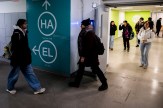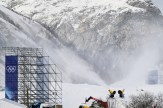Indigenous leaders and advocates say reconciliation begins with inclusive healing process
U.S. Rep. Sharice Davids, one of the first two Native women elected to Congress, spoke at Monday’s event at Northeastern’s Vancouver campus.
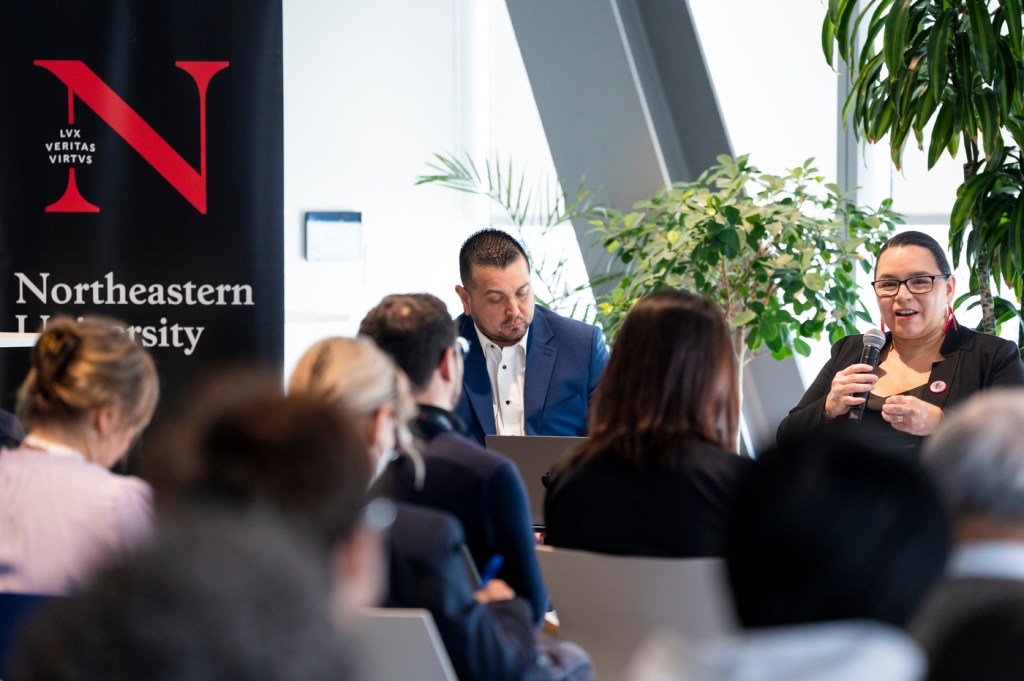
Legislation. The court system. Economic development. First Nations and Indigenous peoples in Canada and the United States have taken different paths toward achieving reconciliation with non-tribal governments.
But Indigenous leaders speaking at a forum on Northeastern University’s Vancouver campus Monday said that reconciliation is a process in which all peoples — Indigenous and non-Indigenous — can participate.
“We have the opportunity to help all of us heal — not just Native or Indigenous peoples, although of course they are a huge priority of mine — but I also think our communities can learn from that process,” said U.S. Rep. Sharice Davids, a Democrat from Kansas and one of the first two Native women elected to Congress, appearing via Zoom.
“Acknowledging the truth about what happened, doing what we can to heal so we can have stronger relationships with each other and with non-Indigenous people — it’s truly the only way we can grow together.”
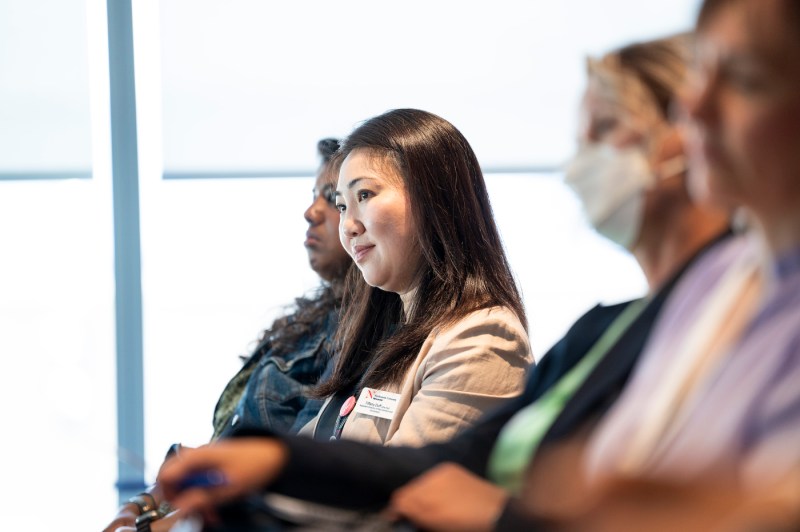
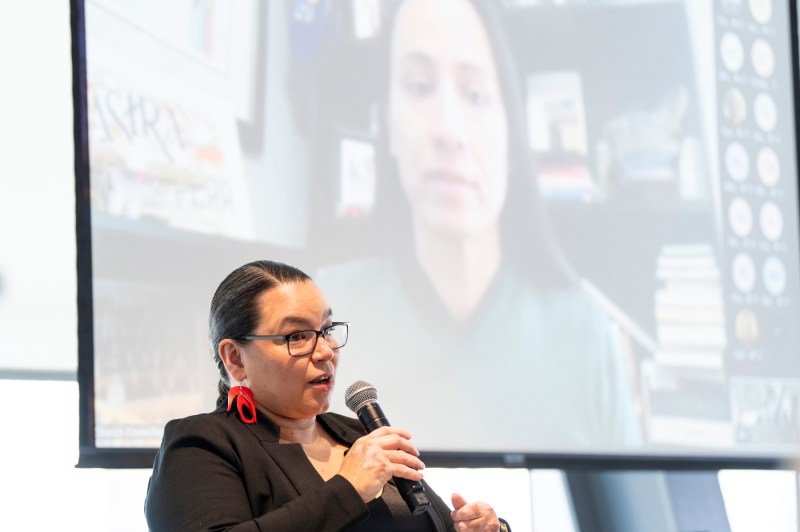
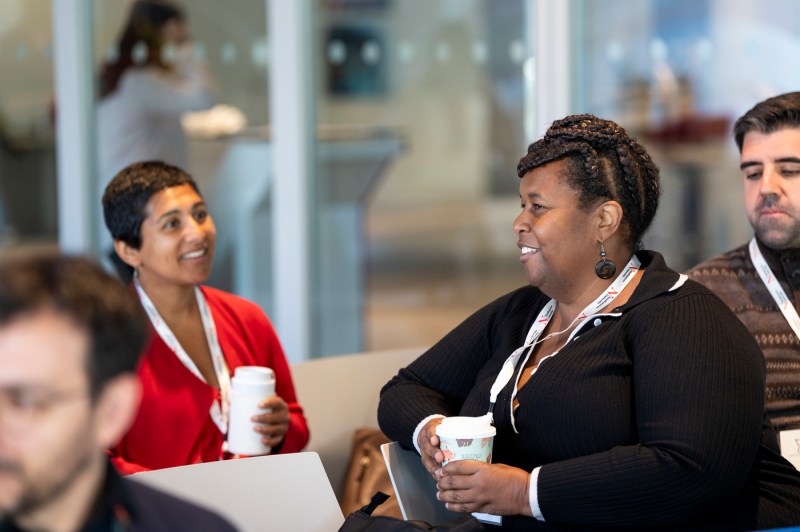
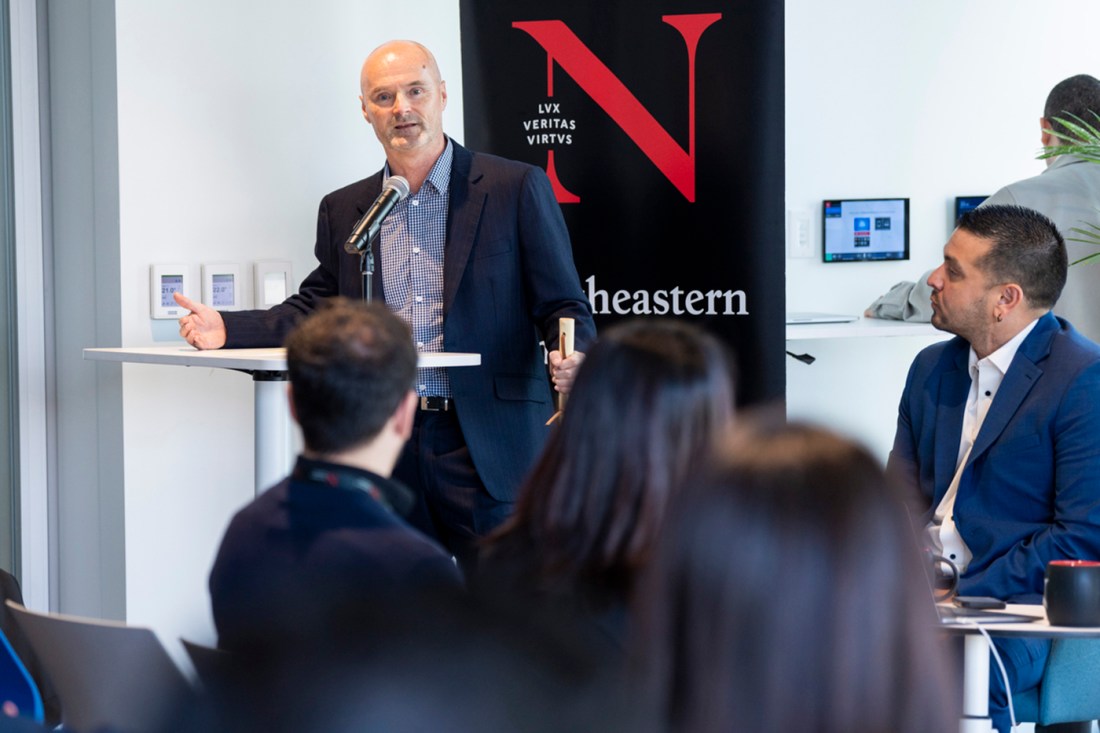
Northeastern’s Vancouver campus is located on the unceded territory of the Coast Salish Peoples, including the territories of the xʷməθkwəy̓əm (Musqueam), Skwxwú7mesh (Squamish), and səlilwətaɬ/Selilwitulh (Tsleil-Waututh) Nations.
This acknowledgement kicked off a discussion Monday titled “Reconciliation with Indigenous Peoples in Canada and the U.S.”
The government of Canada has committed to achieving reconciliation with Indigenous peoples and is implementing the United Nations Declaration on the Rights of Indigenous Peoples.
As part of that effort, the provincial government of British Columbia passed legislation in 2019 mandating that the government bring provincial laws into alignment with the U.N. declaration and develop and implement an action plan in consultation and cooperation with Indigenous peoples to meet the objectives of the declaration.
But event moderator Jessica Wood — who recently became the first Indigenous person to serve as deputy minister in the province of British Columbia and, as such, is tasked with developing this action plan — said that most progress toward reconciliation in Canada has been the result of legal action. In contrast, the United States has — at least in the more modern era — focused on legislation.
“We took this road very differently than the U.S.,” Wood said, pointing to the landmark Indian Residential Schools Settlement Agreement, the largest class-action settlement in Canadian history, which sparked the recent reconciliation movement beginning in 2007.
Meanwhile, the Squamish Nation is building a mixed-use development with 6,000 housing units on its land in Vancouver that it calls “reconciliation in action.”
These differing approaches toward reconciliation emphasize that reconciliation is complex.
“This is the million-dollar question,” Ken Watts, elected chief councilor of the Tseshaht First Nation, said when asked “what does reconciliation mean to you and why is it important.”
“Reconciliation first is acknowledging that something happened in the past,” Watts continued. “We’re here to correct it right now in the present and make it better in the present, but we’re doing all of this for the future.”
Moreover, reconciliation takes many forms, Watts said. These include reconciliation with self, or reconciling the trauma experienced by Native and Indigenous peoples; reconciliation among First Nations both pre- and post-contact; reconciliation with governments; and reconciliation with Canadians, Watts said.
But the complexities and differing approaches to reconciliation also mean that there are multiple ways for non-Indigenous or First Nations peoples to participate.
Featured Posts
“Find ways to get educated about things,” Davids said, recommending topics such as the Indian Residential Schools system, assimilation policies put in place by the United States and Canadian governments, and the diversity of pre-Contact communities.
“There’s not the expectation that you show up knowing everything,” Davids continued. “But a baseline understanding so people know that the history isn’t invisible is a very good thing.”
Wood advised allies to prepare to be uncomfortable, saying it was important to hear and learn about Native and Indigenous peoples’ histories even if it is discomforting, as that is a sign of “your privilege starting to wane.”
“I’m not asking you to be unsafe, I’m not asking you to engage in triggers,” Wood said. “Dirt makes you grow, it’s the only way to the other side to really know those truths and really accept them, otherwise you’re in danger of repeating them.”
Meanwhile, Watts emphasized educating future generations about the Native and Indigenous peoples’ history and returning land to Native peoples.
“The two most important things are our kids and our land, in our opinion,” Watts said, calling the ceding of land as the “biggest form” of reconciliation.
But for those without the ability to change school curriculums or return land, Watts said the first step toward reconciliation is asking Nations and individual Indigenous people how to help.
“Coming out and just asking how can I help and volunteering and supporting goes so far and for universities — rather than coming to Nations saying ‘Here’s this project we want to do,’ how about going to Nations and saying ‘What projects would you like us to do? We’re here to help,’” Watts said. “I really encourage universities and others to actually just ask First Nations how can I help, because it’s going to be different for every one of them.”
The event concluded with questions, including one from Northeastern regional dean and CEO of the Vancouver campus, Steve Eccles.
“What projects can we help you with?” Eccles said.






